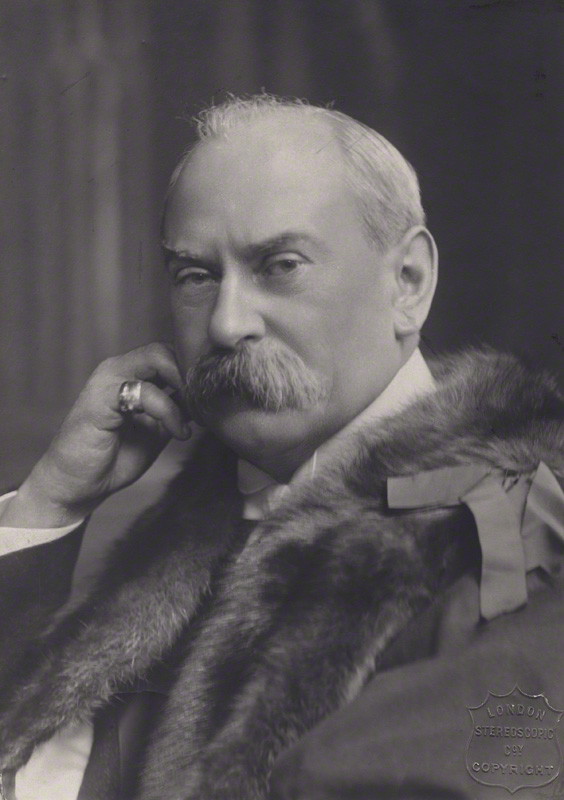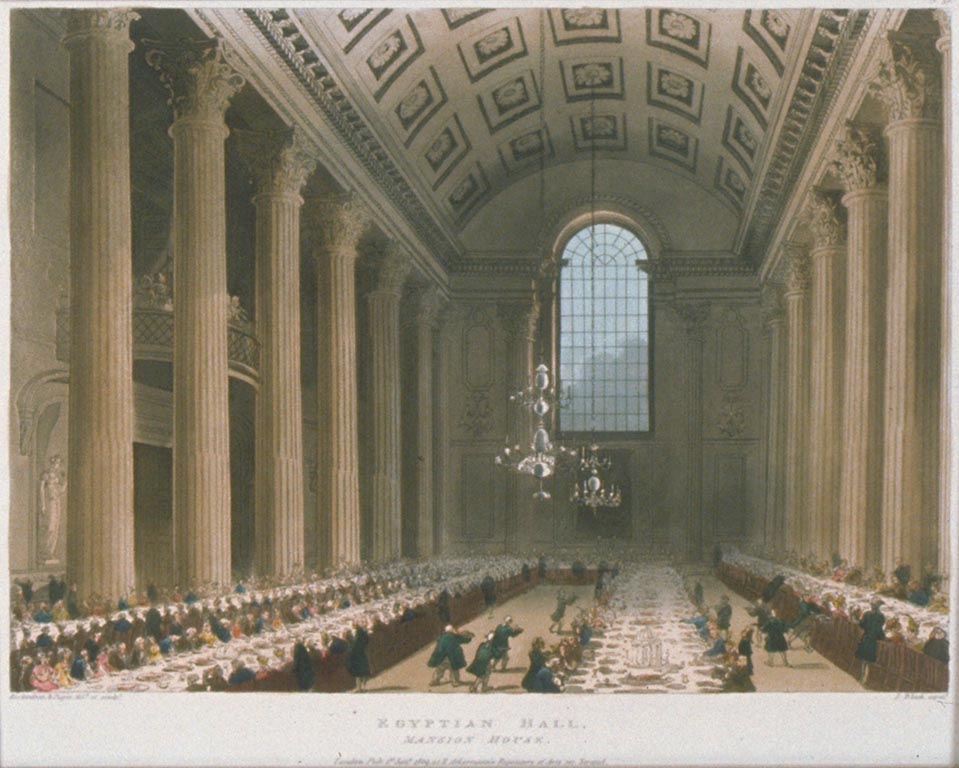At least five members of the family were at this one. They’re starting to become part of the Catholic great and the good……………… Stuart Knill (no relation) was the first Catholic Lord Mayor of London since the Reformation, when he was elected six years later.
On Monday night the Annual Dinner of the Benevolent Society for Aged and Infirm Poor was held at the Albion Hotel, Aldersgate street.
Mr. Alderman Stuart Knill presided, and among those present were the Bishop of Southwark, the Bishop of Portsmouth, the Bishop of Emmaus, the Right Revv. Mgr. Canon Gilbert, V.G., and Mgr. Goddard ; the Very Revv. Canons Wenham, Moore, O’Halloran, McGrath, and Murnane, V.G., Father Aubry, and Dr Kelly, 0.S.A. ; M. l’Abbe Boyer and M. l’Abbe Toursel ; the Revv. J. Aukes, J. Bloomfield, J. J. Brenan, T. H. Burnett, D. Canty, T. Carey, G. Carter, P. Cavanagh, S. Chaurain, G. Cologan, J. Connelly, W. J. Connolly, C. A. Cox, G. S. Delany, E. English, M. Fanning, W. Fleming, T. Ford, F. A. Gasquet, 0.S.B., T. F. Gorman, W. Herbert, James Hussey, P. McKenna, T. F. Norris, C. O’Callaghan, D. O’Sullivan, E. Pennington, L. Pycke, T. Regan, F. Stanfield, L. Thomas, and E. J. Watson ; Judge Stonor, Mr. Alderman Gray, Mr. Deputy Young, K.S.G. ; Captain Kavanagh, Mr. J. Roper Parkington, Captain Shean, Dr. Ratton, and Messrs. W. A. Baker, J. Bans, Jun., W. Barrett, E. Belleroche, E. J. Bellord, John G. Bellord, M. Bowen, Augustin Boyle, Arthur Butler, George Butler, Jun., John Conway, E. Curties, F. H. Dallas, V. J. Eldred, R. M. Flood, E. J. Fooks, Garrett French, C. Gasquet, L. Gasquet, T. J. A. Grew, J. D. Hallett, W. B. Hallett, A. Hargrave, H. D. Harrod, J. Hasslacher, A. Hernu, J. J. Hicks, H. J. Hildreth, J. Hodgson, Alfred Hussey, James Hussey, John Hussey, Thomas Hussey, Thomas Hussey, Jun., William Hussey, J. B. Ingle, G. Pugh-Jones, W. Keane, Jun., J. M. Kelly, J. E. S. King, John Knill, Denis Lane, F. D. Lane, M. G. Lavers, C. Temple Layton, Dudley Leathley, F. Harwood Lescher, C. E. Lewis, Sidney Lickorish, W. H. Lyall, James PP. McAdam, James Mann, F. K. Metcalfe, J. Morris, W. J. O’Donnell, D. O’Leary, Thomas Osborn, Jun., Bernard Parker, Joseph J. Perry, Charles Petch, A. Pinto-Leite, Edmund Power, P. P. Pugin, Alfred Purssell, F. Purssell, E. Rimmel, E. W. Roberts, E. Rymer, Michael Santley, J. Scully, J. H. Sherwin, L. W. Stanton, C. F. Taylor, M. E. Toomey, W. Towsey, E. J. S. Turner, J. T. Tussaud, James Wallace, Thomas Welch, Stephen White, and J. J. Cooper-Wyld.
In proposing the health of the Pope, the Chairman said that his Holiness Pope Leo XIII., the two hundred and fifty-eighth occupant of the most ancient of thrones, was conspicuous by his watchfulness over Catholic and Christian interests and by his resistance to the powers of evil by which those interests were menaced. His wonderful Encyclical Letters on the great questions of the day were acknowledged by all to be perfect models of what should come forth from the true Shepherd of the sheep. Called on to arbitrate in international disputes ; called on to assert himself as the protector of his children in whatever part of the world they might be, he had by his justice and self-sacrifice won for himself the admiration of all—he had won for himself the hearts of his own children, and he had gained the veneration and respect of those who did not look upon him as their spiritual head. They were on the threshold of that year when the Holy Father would celebrate the jubilee of his priesthood ; and he asked them to fill their glasses and drink, as of old, to our “Bon Pere—his Holiness Pope Leo XIII”.
The toast having been received with great enthusiasm and drunk with musical honours, the health of the Queen and the members of the Royal Family was next given.
In proposing this, The Chairman said that civil power came from God, and was so closely allied to the spiritual that he had a great desire to unite the two toasts. It was a happy coincidence that while the Pope would celebrate the jubilee of his ordination, her Majesty would celebrate the jubilee of her coronation. They had for fifty years had the happiness of having a Sovereign who by her gentle sway, by her heartfelt sympathy with the joys and sorrows of our people, had gained the hearts of her subjects and justly deserved the title of Queen of our Hearts. And what was true of her Majesty was equally true of her Royal children. The Prince of Wales was ever amongst them taking part in every work which could promote the happiness and welfare of their fellows. He asked them to heartily drink the health of her Most Gracious Majesty and long life to the Prince and Princess of Wales.
The next toast was “The Health of the Cardinal Archbishop.”
In proposing this, the Chairman said that he regretted that their beloved Cardinal Archbishop was prevented from being present that night. They all knew the part which his Eminence took in any movement having for its object the alleviation of the sufferings of the poor. It was not for him to enter into details concerning his Eminence, but they all knew that he was ever ready to sacrifice everything for the good of his flock. By those outside the Church the Cardinal was looked upon as a true Englishman ; he had by his ability, by his gentleness, and by his readiness to take a part in every movement for the benefit of his fellows gained the respect and admiration of all with whom he had come in contact. They well knew the interest he took in their society, the love he had for the poor and aged. His constant visits to their annual gatherings ; his constant appeals to them not to forget that though other charities might be of more interest, they could never allow those old men and women whom their society regarded as their special objects of care, to want at all events any little comforts of life which they could supply, showed the interest he took in their society.
The Bishop of Emmaus, in responding to the toast, said that all through life the Cardinal Archbishop had devoted himself to the good of his fellows. The Prince of Wales, speaking of his Eminence, had said : “I consider Cardinal Manning a true patriot.” Those words certainly deserved their attention. However some of his countrymen might disagree with his Eminence on certain points, they all knew that he was a practical man ; they knew that he never spoke at random. What he did he did after mature consideration. It was indeed a subject for very great rejoicing that his Eminence had gained for himself the admiration and esteem of all classes of Englishmen. No one regretted the absence of the Cardinal that night more than he did, but his Eminence had asked him to make the appeal which he himself would have done had he been amongst them. He was sure that all were desirous of helping any movement once they were assured that it was deserving of their sympathy. He knew of no work more worthy of their charity than the providing for the poor and aged. The annual subscriptions for the year, he regretted to say, had fallen off £100. It was true that they had no increase in the number of their pensioners. Under the circumstances it would not be prudent to add to the number of their pensioners ; but nevertheless it was sad to see any falling off in the subscriptions.
Since the last report of their society no less than £5,484 had been paid to the poor pensioners in weekly instalments, and in otherwise helping them. He rejoiced to be able to say, especially in the presence of their chairman, that the merchants and bankers in the City of London had shown as much generosity as ever to their society, and that they contributed the magnificent sum of £500. He would not speak of Mr. Arthur Butler in his presence, but they knew well his exertions on behalf of the society. He was sure they would contribute generously that night. Their alms would be well bestowed. Many of the poor aged and infirm people, unable to earn their livelihood, had sought relief of the society, but the society could not go beyond its means, and so many applicants had to be refused its assistance. Many of these poor had seen happier and brighter days, and it was indeed hard to refuse them aid. But they could not do more than their means would allow. He could not help alluding to the death of one who had taken a deep interest in their society, and had laboured zealously on its behalf, the late Dr. Hewett. He felt certain that they would contribute generously to a work so well worthy of their sympathy, and thus show their interest in the oldest Catholic charity for the relief of distress in the great city where they dwelt.
The health of the Bishop of Portsmouth was next proposed by the Chairman, and that of the Bishop of Southwark by Judge Stonor, and the remaining toasts of the evening included the health of the Bishop of Emmaus, the clergy of Westminster and Southwark, Mr. Arthur Butler, the Stewards, and the Chairman.
The above text was found on page 36, 27th November 1886 in “The Tablet: The International Catholic News Weekly.” Reproduced with kind permission of the Publisher. The Tablet can be found at http://www.thetablet.co.uk .


